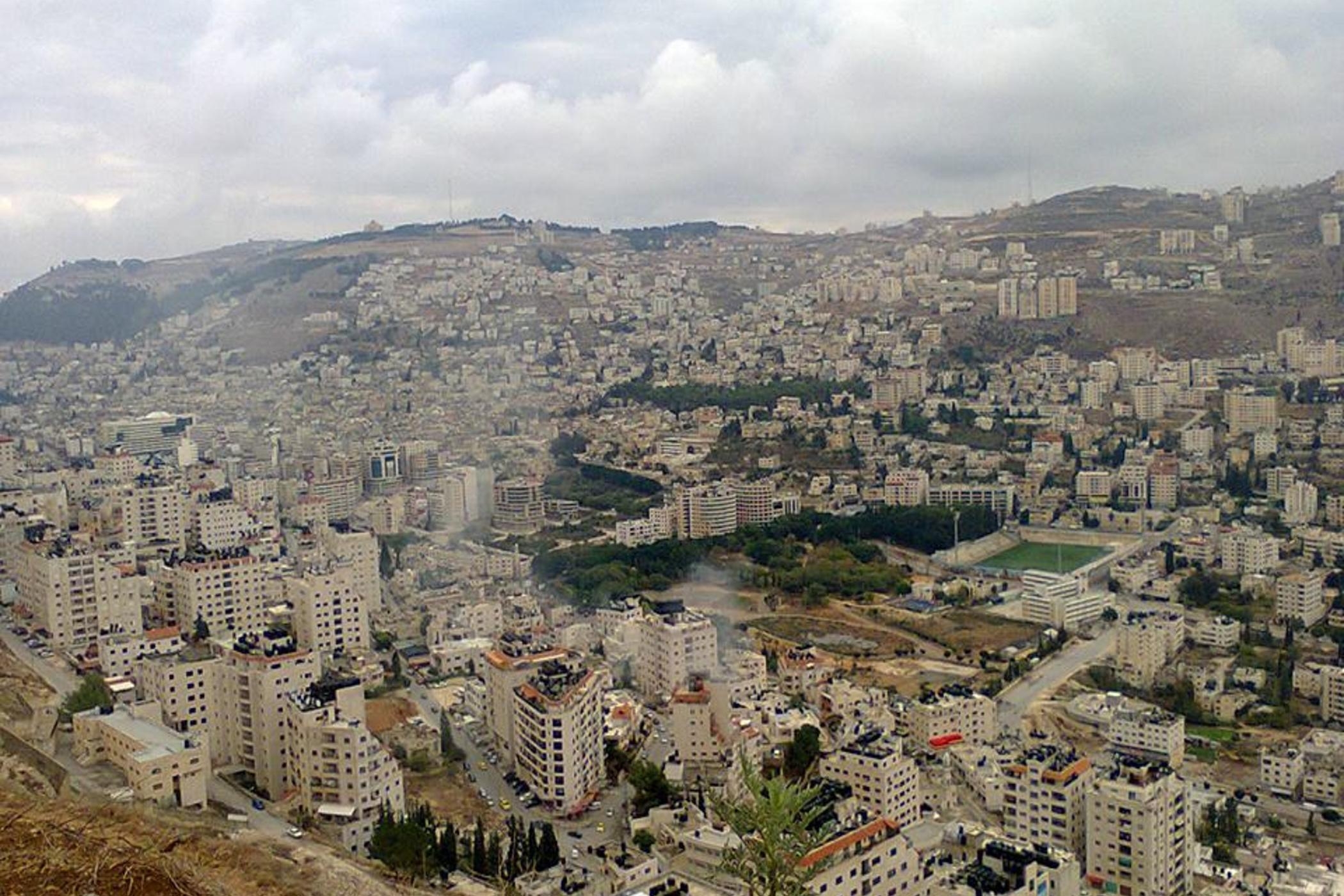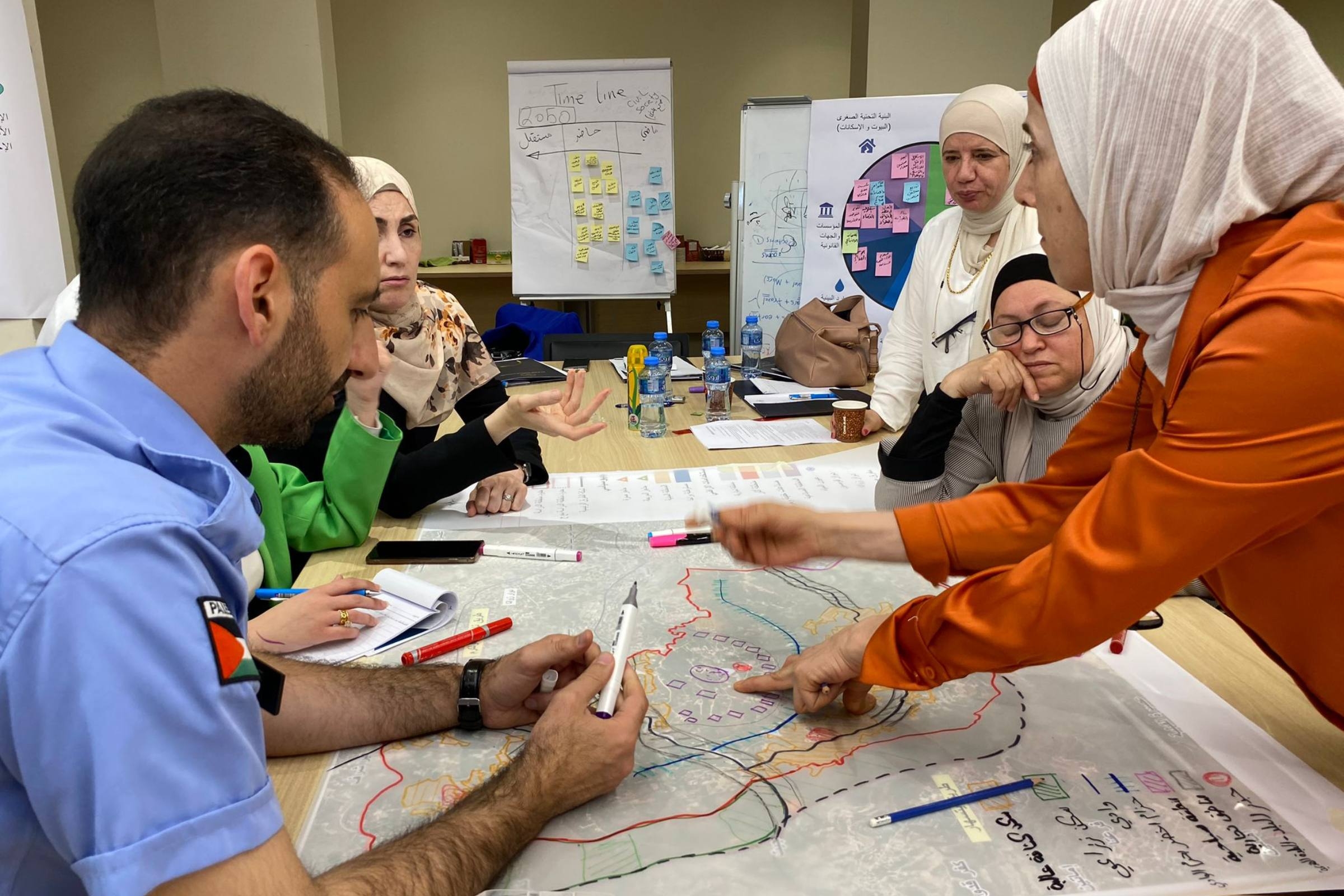
With a a rich history of active engagement in various roles, from activists to educators and healthcare professionals, Palestinian women have been in the forefront of their people's struggle. Now, they are working with Tomorrow's Cities to shape the future of Nablus.
Women Shaping the Future: Empowerment and Challenges in Palestine
In a defining moment in April 2021, 23-year-old Muna el-Kurd seized the global spotlight. Alongside her twin brother, Mohammad, she ignited the furnace of a powerful grassroots movement, using the hashtag #SaveSheikhJarrah to protest Israel’s occupation eviction policies in East Jerusalem. With unwavering determination, Muna and her brother rallied international support by harnessing the power of social media and later engaging with mainstream media, thrusting the Palestinian cause and their plight into the Western spotlight.
In that same year in Beita, near Nablus, while young men protested Israeli settlers intentions to build an illegal outpost on Mount Sabih, women organized themselves into a group called Aqal Wajib (Arabic for “the least we can do”). If men were the arms and legs of the protest, Beita women, who at the height of the protests prepared 250 meals per day, were its heart and soul. They delivered food to the protestors, organizing, connecting and coordinating the supply. Most of the money used to produce the meals, came from the women themselves.
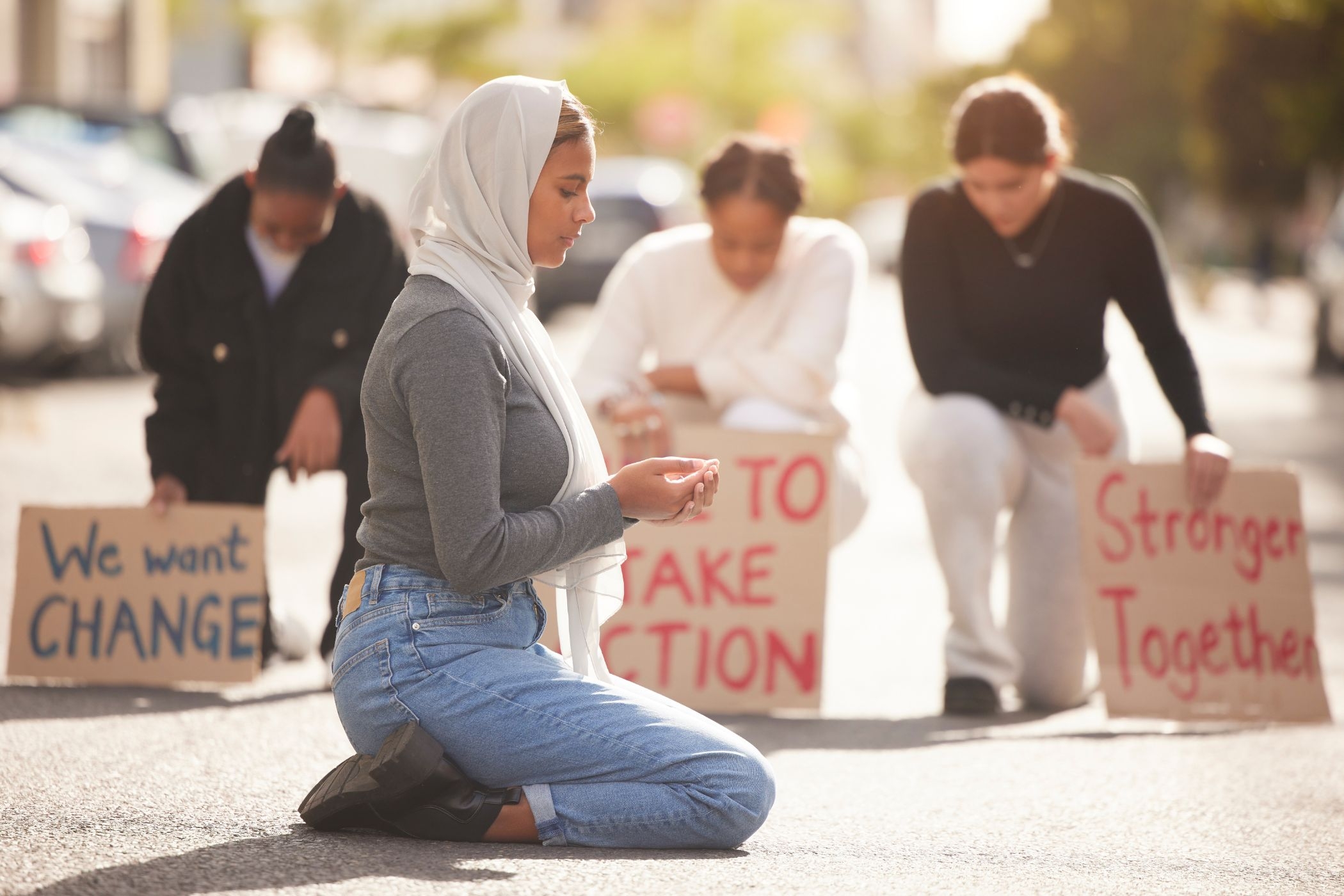
These are just two examples in a very long list of women’s active involvement in Palestinian society. Along the years, women and women-led organization, such as the Union of Palestinian Women’s Committees, founded in 1980, or the National Women’s Coalition for the Implementation of the CEDAW Conventions, have established protection committees and local civil society organizations to address issues ranging from service provision to gender-based violence and conflict resolution. They contribute to peace at the local level as activists, humanitarian workers, educators, healthcare professionals and facilitators, and have successfully built coalitions gaining influence in their communities over time. They were the inspiration and engine behind UN Security Council Resolution 1325 that, for the first time in history, called for the inclusion of women in matters of war prevention and peace-making.
Still, Palestinian women and girls also face complex challenges and issues, many of which are interconnected and exacerbated by the ongoing Israeli occupation of Palestinian territories, and societal norms within Palestinian society.
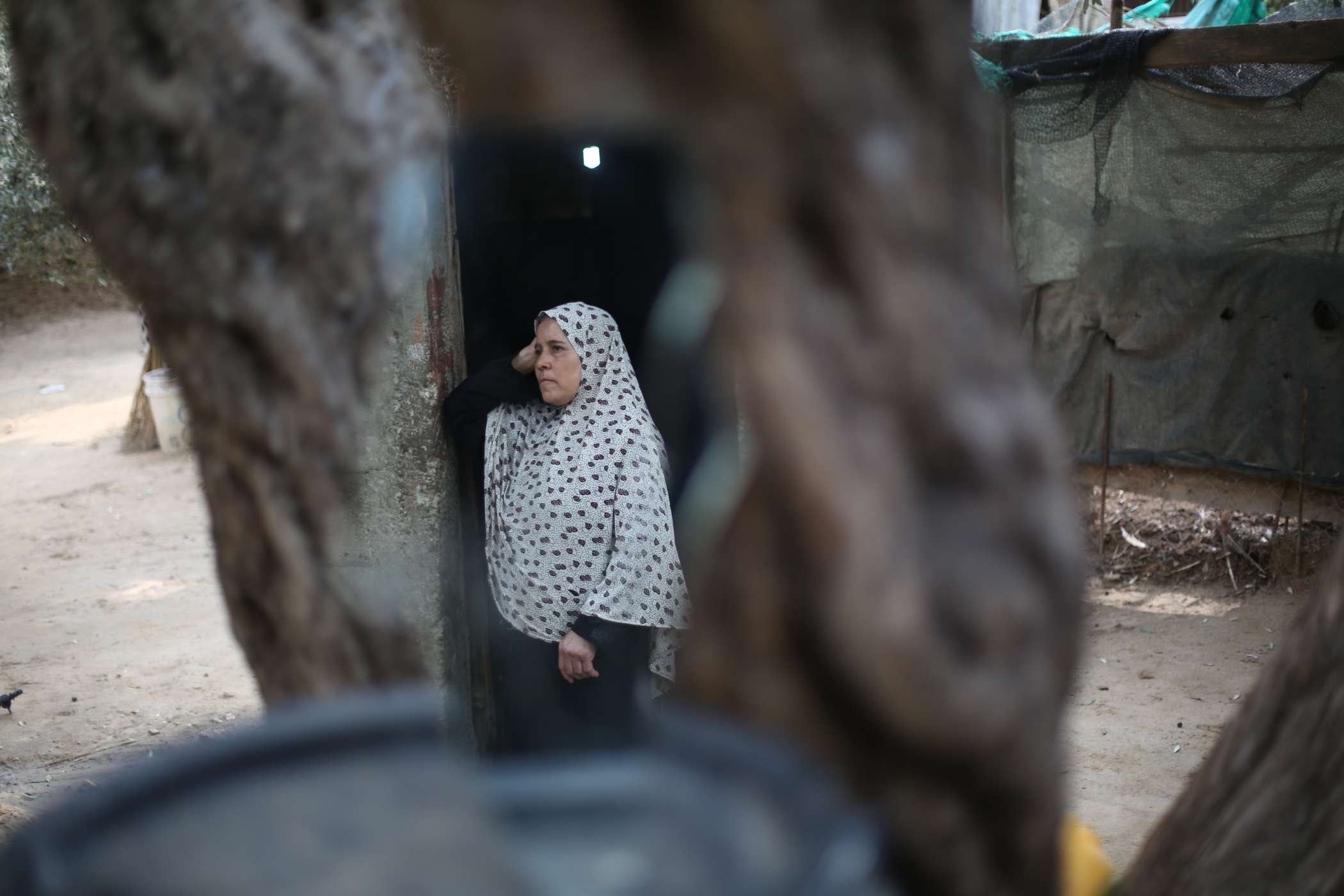
As a project that strives for inclusion and equity while focusing on reducing disaster risk and fostering evidence-based urban planning, Tomorrow’s Cities team in Nablus, Palestine, worked with a group of women to discuss and understand the challenges they have faced in the past, what concerns them at present and what aspirations they have for the future of their city.
During Future Visioning stakeholders come together to collectively imagine, discuss, and propose visions for the future of their city. During this stage, diverse stakeholders discuss their different priorities, struggles and, most importantly, aspirations for the future. They then translate their aspirations into concrete spatial plans and identify key policies and actions that enable implementing those aspirations while reducing disaster risk.
In Nablus, our team facilitated a transformative dialogue with a diverse group of women hailing from various backgrounds and geographical origins, that helped us seeing the world through their eyes, gaining insight about their present-day struggles and aspirations for the future. The discussion primarily revolved around three key areas: housing, education, and health.
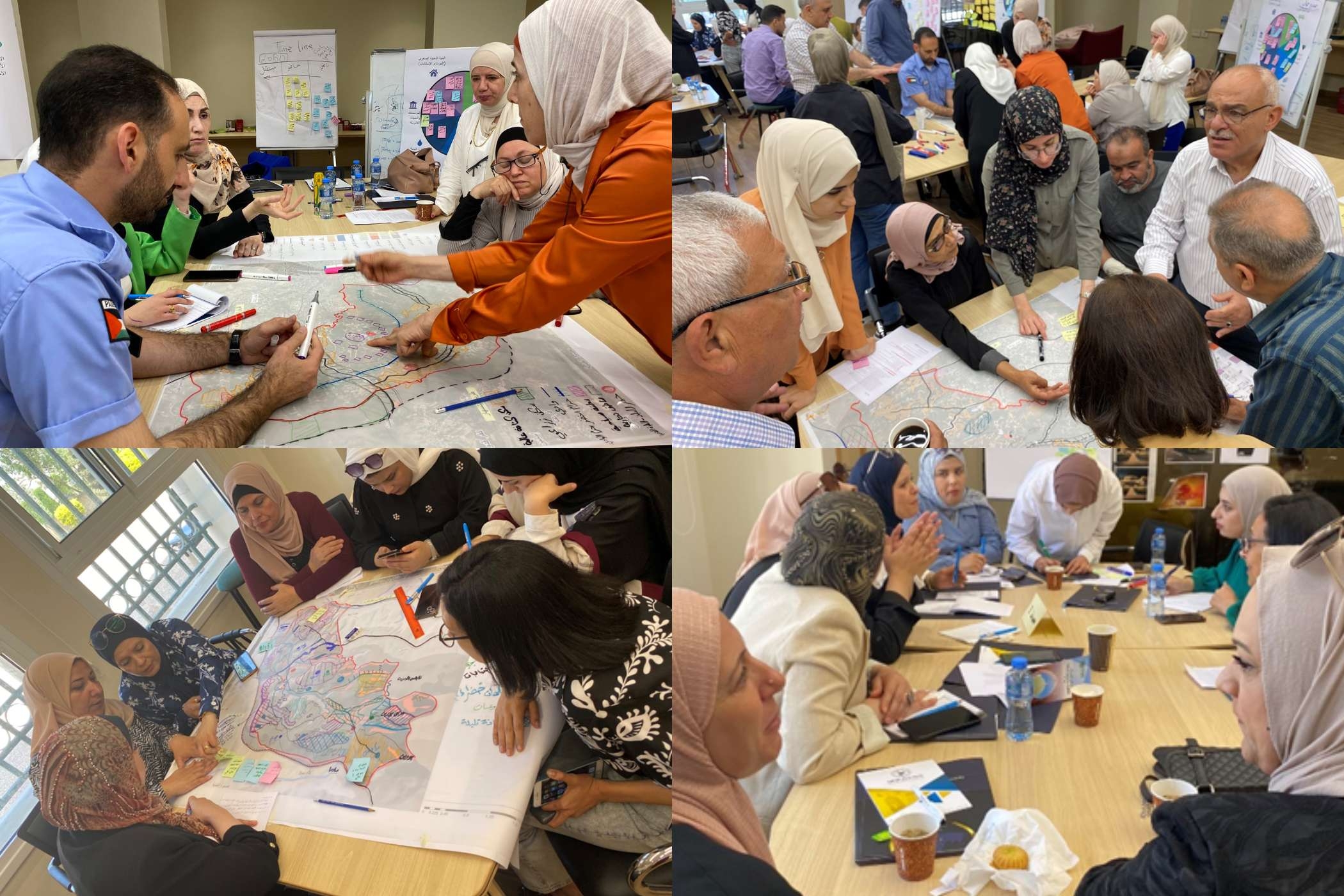
Women participating in the Future Visioning activities in Nablus.
Past and Present
Housing. Less space, taller buildings.
One prominent issue that emerged from the discussion was the transformation of housing in Nablus. According to the group, over the years, there has been a noticeable increase in the number of houses and building heights, impacting the city's physical landscape.
“Life in Balata (refugee camp) used to be more spacious thanks to UNRWA support. However, the present reality is marked by overcrowding, with multiple floors being added to existing structures, often encroaching upon public streets and spaces. This shift has made it virtually impossible to find single-floor houses.”
- Balata refugee camp resident.
Participants also lamented the lack of play areas for children as green areas that once adorned the cityscape are rapidly dwindling and reflecting the evolving challenges of urban living in Nablus.
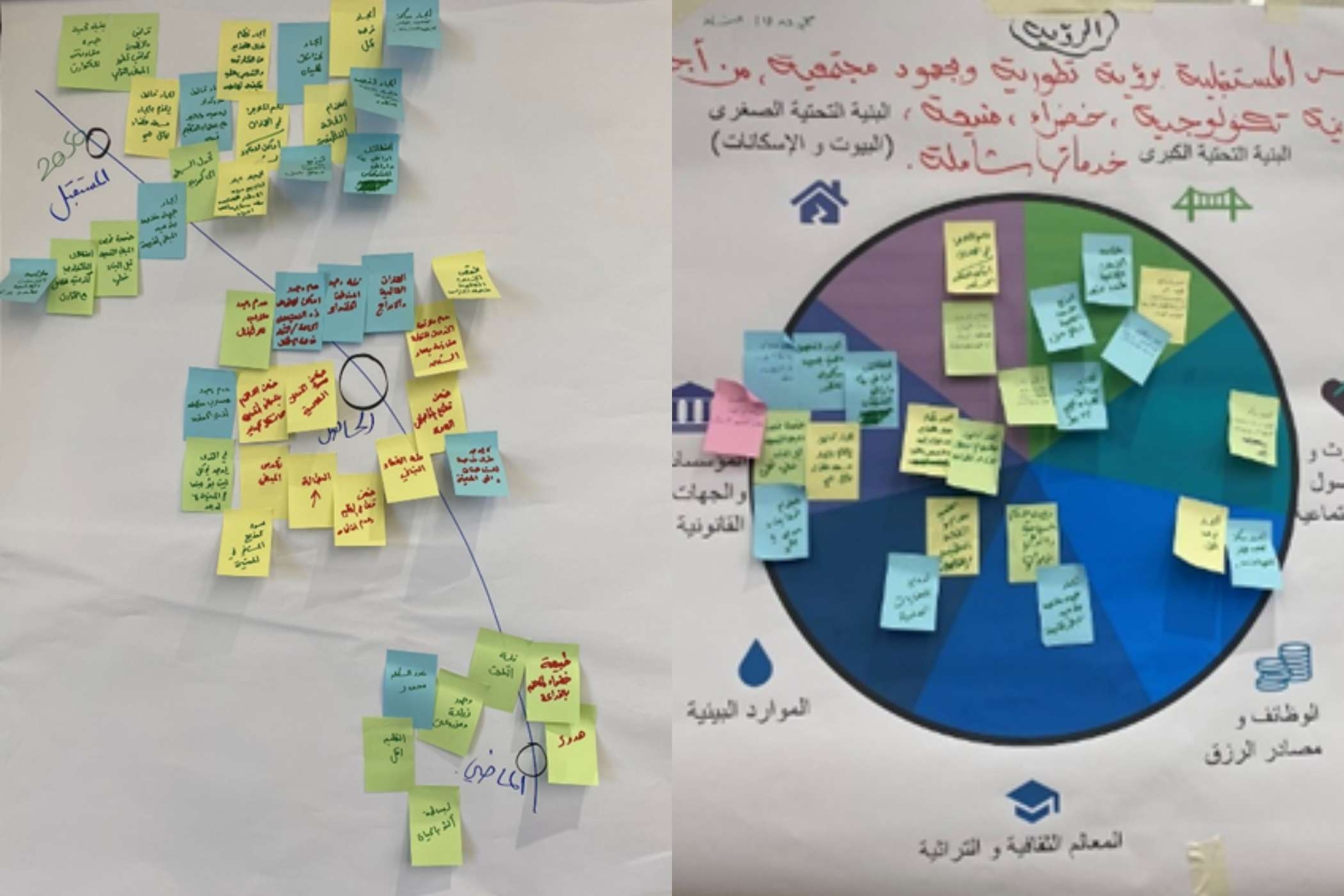
"Wheel of assets" used during Future Visioning activities to capture stakeholders aspirations.
Education, more graduates but less job opportunities.
Education was another focal point of the discussion, with participants expressing concerns about the declining quality of education in Nablus. Despite an increasing number of graduates, job opportunities for these individuals have become scarce. This stark disparity between education and employment prospects poses a significant challenge for the city's youth.
Healthcare
Inequalities in access to healthcare services is also seen as a challenge by this group of women. They told us that the distribution of health clinics is unfair and difficult to access at times, especially in rural areas and refugee camps.
“In the past, refugee camps benefited from UNRWA support, including on-site clinics, but these services have waned over time.”
- Balata refugee camp resident.
Resilience for the future
Despite the differences in their backgrounds, the women in the group shared a common vision for Nablus, one that bridges the gap between the past and the present, for a brighter future. During the workshops, they expressed their future aspirations and identified policies in areas as diverse as infrastructure, environment, jobs and livelihoods and the rule of law. Then, with the support of Tomorrow’s Cities Facilitators, they projected those visions onto a land-use plan.
At the core of their vision is a call for a resilient infrastructure capable of withstanding various hazards, both natural and man-made. This plea is accompanied by a demand for legislation and policies support that future. To ensure the safety of their community, the women advocate for early warning systems that can provide timely alerts of incoming hazards and shelters where residents can seek refuge during times of crisis.
In an effort to foster a greener, more sustainable city, with better air quality, the group proposed legislation mandating the creation of green spaces in every neighbourhood together with the implementation of rainwater harvesting systems.
“We yearn for a brighter future where we empower our fellow women through the creation of a comprehensive job and training center. This center won't just offer education and skill development; it will also unlock a multitude of job opportunities, dismantling age-old barriers and forging a path towards true gender equality”.
- Inhabitant of Nablus
Additionally, the women envision an expanded portfolio of tourist attractions in Nablus, recognizing the economic benefits that tourism can bring to their city.
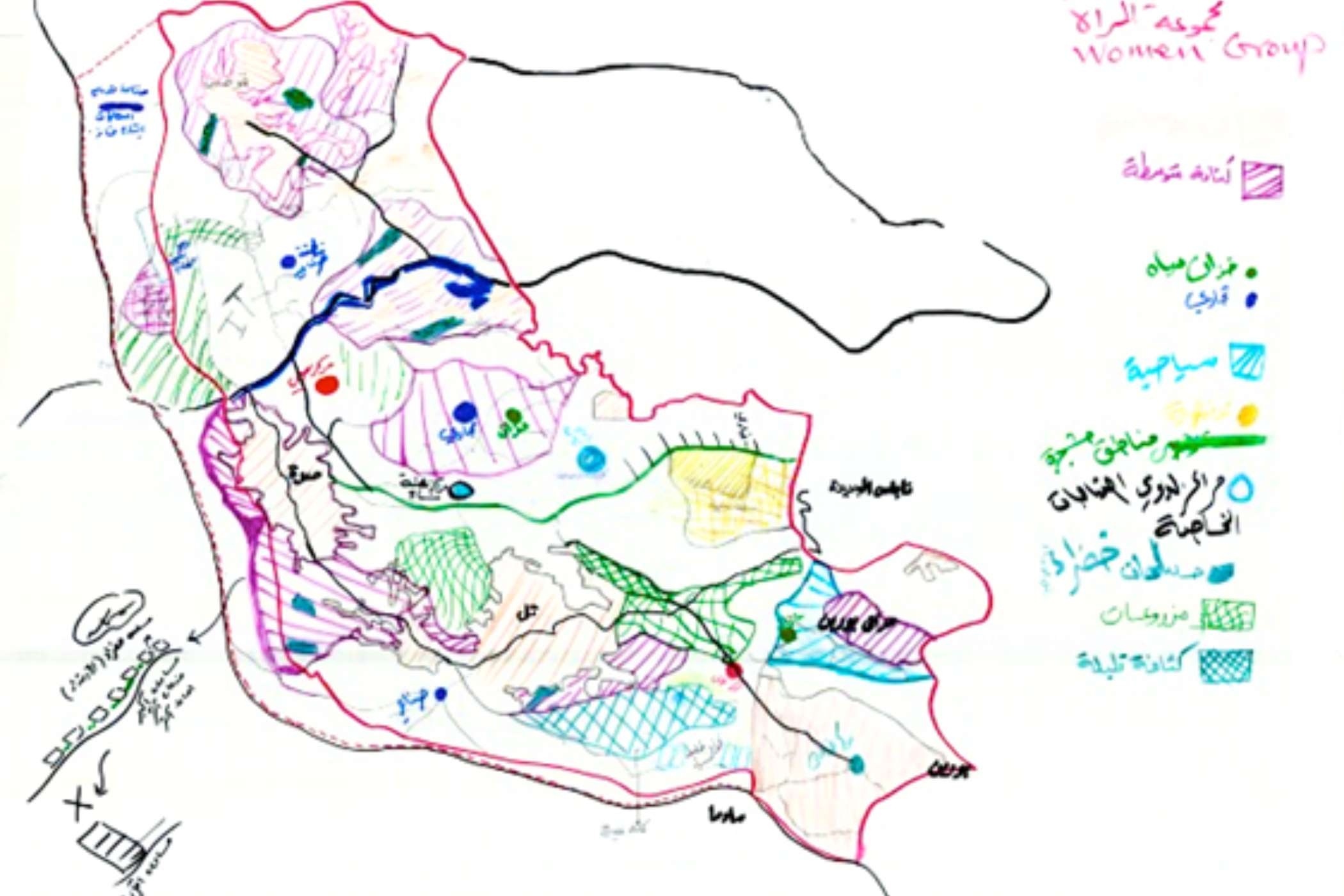
Land-use map created by Nablus women.
In sum, the life experiences, memories and aspirations of Nablus’s women, informs their vision of the future. One that imagines and wishes a city that stands resilient in the face of adversity, embraces green spaces, safeguards its citizens, and nurtures economic growth and gender equality.
